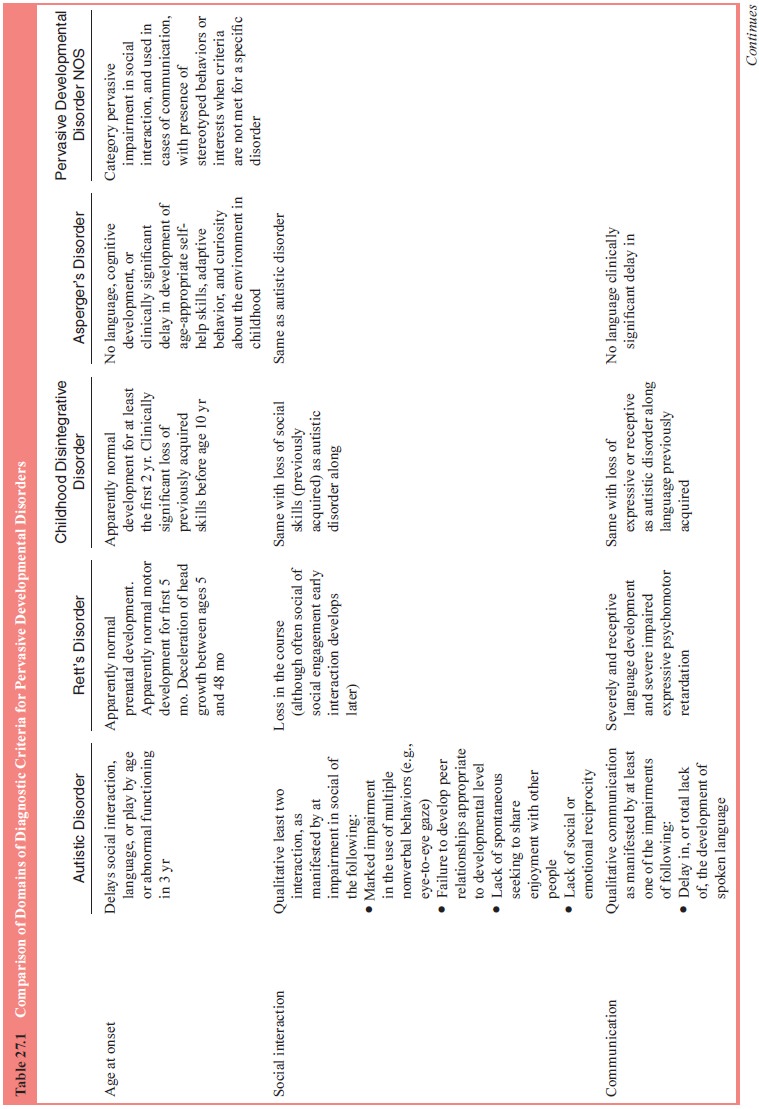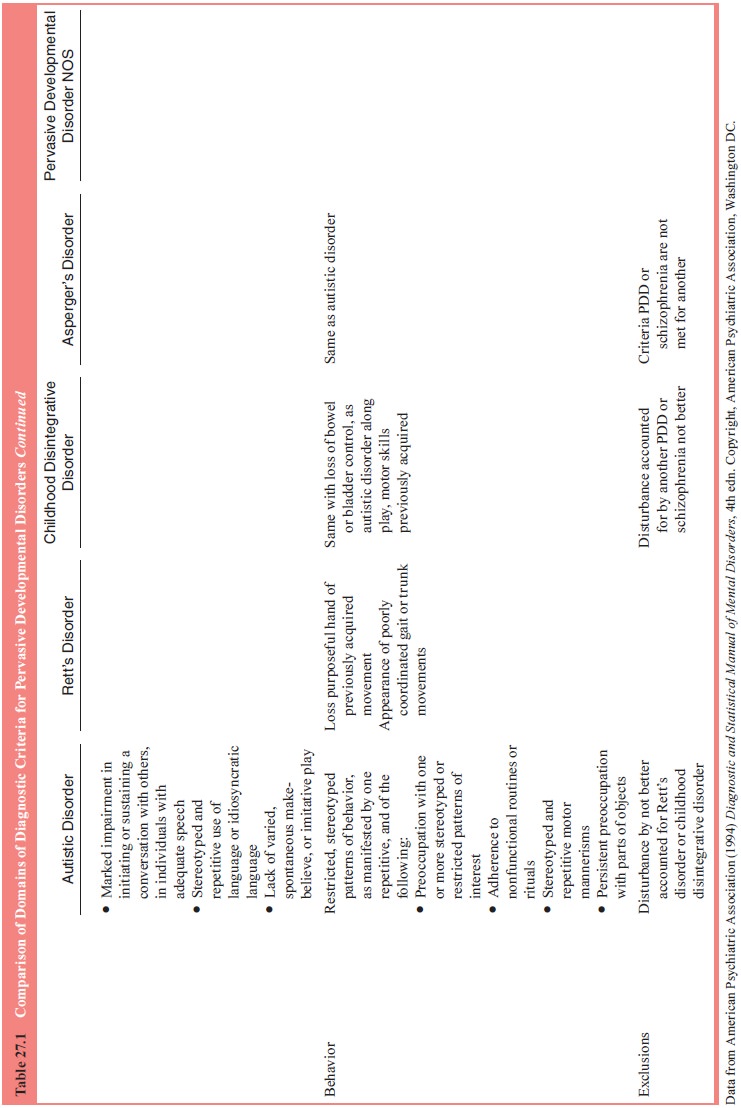Chapter: Essentials of Psychiatry: Childhood Disorders: The Autism Spectrum Disorders
Childhood Disorders: The Autism Spectrum Disorders
Childhood Disorders: The Autism Spectrum Disorders
Definition
The autism spectrum disorders (ASDs) are a group of
neurodevelopmental syndromes characterized by disturbances in social
interactions, language and communication, and the presence of stereotyped
behaviors and interests. Diagnoses include autistic disorder, Rett’s disorder, childhood
disintegra-tive disorder, Asperger’s disorder and pervasive developmental
disorder not otherwise specified (PDD NOS) (Table 27.1).


History
The contemporary conceptualization of ASD began
with Leo Kanner’s (1943) description of 11 children with “fascinating
pe-culiarities” that he labeled early
infantile autism. Kanner noted the lack of social relatedness in these
children, including their seeming not to acknowledge the presence of others and
their dif-ficulties in recognizing the feelings of others. These children had
language irregularities that included a paucity of communicative speech,
echolalia and pronoun reversal. Kanner also described their need for sameness
and routines, and their engagement in rituals and repetitive activities. The
following year, Asperger (1944) described a similar syndrome, but this group
had more language and communication skills than the patients reported by
Kanner. Asperger called this collection of symptoms autistic psychopathy,
now referred to as Asperger’s disorder.
More recently, the ASDs have been conceptualized as
a spec-trum of conditions that are related by the common features of the
disorders: difficulties in social interactions and use of language, and
restricted interests and repetitive behaviors. Despite the enormous
heterogeneity evident in this area, there is increasing evidence that
conceptualizing these disorders as a spectrum is useful and valid.
Related Topics